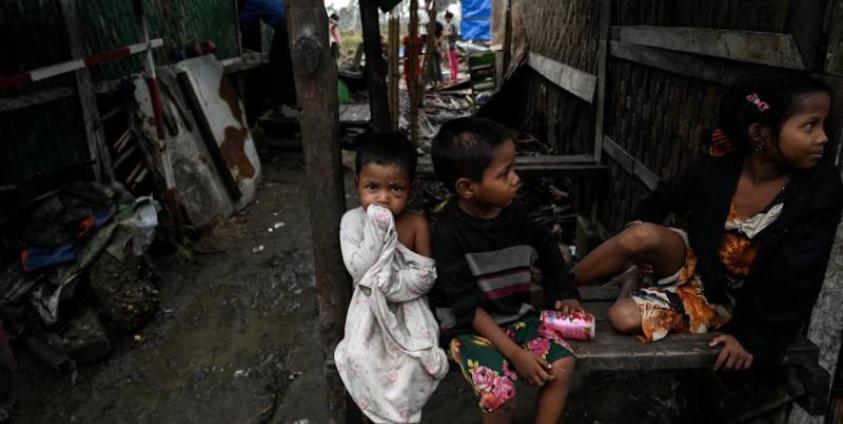UNICEF released a report on 5 December stating that the situation for children and their families in Myanmar continues to deteriorate amid escalating conflict, which has displaced over 3.4 million people.
The key points of the report are as follows:
The situation of children and their families continues to worsen in Myanmar amid escalating conflict that has displaced more than 3.4 million people; climate shocks; and public health emergencies. Access to critical life-saving services has sharply diminished, particularly for conflict-affected and vulnerable children and women. In 2025, 19.9 million people, including 6.4 million children, will require humanitarian assistance.
UNICEF’s humanitarian strategy focuses on working with communities, local and international partners and all stakeholders to deliver life-saving humanitarian assistance and ensure critical services reach children in need.
UNICEF is appealing for $286.4 million to provide life-saving humanitarian assistance to 4.1 million people, including 3 million children. UNICEF aims to reach 1 million people with critical WASH supplies; 400,000 children and women with primary health care services; 2 million children under age 5 with vitamin A supplementation; 552,000 children and caregivers with mental health and psychosocial support services; and 917,000 children with access to education.
HUMANITARIAN SITUATION AND NEEDS
Children and families in Myanmar remain in dire need of life-saving assistance and vital services amid escalating conflict. More than 3.4 million people are internally displaced. The situation is compounded by floods and remnants of Typhoon Yagi, which affected more than 1 million people. Altogether, 19.9 million people – more than one third of the population, including 6.4 million children – will require humanitarian assistance in 2025.
Conflict-affected and vulnerable children and pregnant women struggle to obtain basic health care amid violence and logistical challenges. The under-five mortality rate is at 40 per 1,000 live births – the highest in Southeast Asia. Outbreaks of acute watery diarrhoea threaten children’s well-being and survival. More than 1 million children under age 5 were either zerodose or under-immunized between 2018 and 2022, and progress of the 2024 catch-up campaign remains limited.
The deteriorating economic situation has drastically reduced livelihood opportunities, with nearly 55 per cent of children living in poverty. Approximately 85 per cent of internally displaced households face unmet needs, with one in four resorting to emergency or crisis strategies to cope with food and income shortages.
High food inflation and declining household incomes severely impact dietary quality, with more than 40 per cent of children aged 6–23 months unable to access a diverse and nutritious meal, crucial for their survival, growth and development.
The ongoing conflict has severely weakened the protective environment for children and has exacerbated pre-existing risks, increasing children’s vulnerability to violence, family separation, sexual abuse and exploitation and neglect. In 2023, grave child rights violations rose by 128 per cent compared with 2022, including a near tripling of the number of explosive ordnance casualties. This alarming trend has continued in 2024, with children constituting 32 per cent of the total casualties recorded, increasing the number of children with disabilities. Nearly one third of school-age children remain out of school due to the ongoing and protracted crisis, with seasonal disasters further disrupting education and safe learning environments. The limited access to education increases protection risks and risks a lost generation of children.
There is an urgent need for access to water, sanitation and hygiene (WASH) services, especially for the increasing numbers of people living in displacement settings.19 Safe WASH services are crucial, particularly during the summer and monsoon seasons, to prevent disease outbreaks, including acute watery diarrhoea. The humanitarian context is further complicated by the complex access environment, with active conflict, administrative constraints and changes in territorial control in parts of the country.








